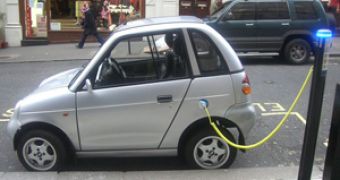A new study performed by Carnegie Mellon University comes to reveal that electric vehicles with smaller battery packs are more efficient in reducing health care costs, environmental damages and oil consumption.
The researchers have found that plug-in vehicles with large battery packs are more costly and may have higher or lower emissions than hybrid electric vehicles (HEVs), depending on where and when they are plugged in.
On the other hand, plug-in vehicles with small battery packs and HEVs that don't plug in can reduce life cycle impacts from air emissions and enhance oil security at low or no additional cost over a lifetime.
This means that despite the fact that they enable longer travel distances, they are underutilized when the battery is larger than what is needed for a typical trip. Moreover, they also require more charging infrastructure and they produce more emissions during manufacturing.
“More research on batteries — especially lowering cost — and a transition to a cleaner electricity grid are needed to pursue a future where large battery packs may also be able to help address climate change, air pollution and oil dependency at competitive costs," stated Carnegie Mellon University's Jeremy J. Michalek.
Study co-author Mikhail Chester, assistant professor of sustainable engineering at Arizona State University, believes that plug-in vehicles with large battery packs might offer bigger benefits if low cost batteries, high gasoline prices, low emission electricity and long battery life, all fall into place.
"But such a future is not certain, and in the near term, HEVs and plug-in vehicles with small battery packs provide more emissions benefits and oil displacement benefits per dollar spent," explains Chester.
"With increasing energy and environmental constraints, transitioning from conventional gasoline vehicles to hybrid and plug-in vehicles offers an opportunity for improving energy independence and air quality while helping to address global warming," added study co-author Constantine Samaras, an engineer at the RAND Corporation.

 14 DAY TRIAL //
14 DAY TRIAL //